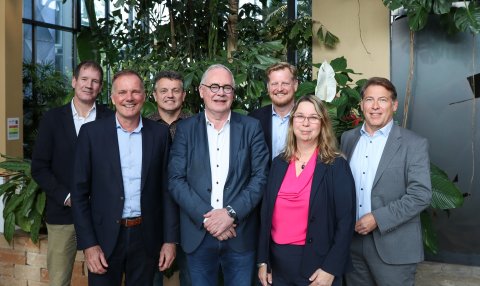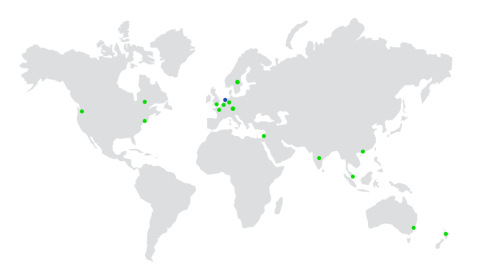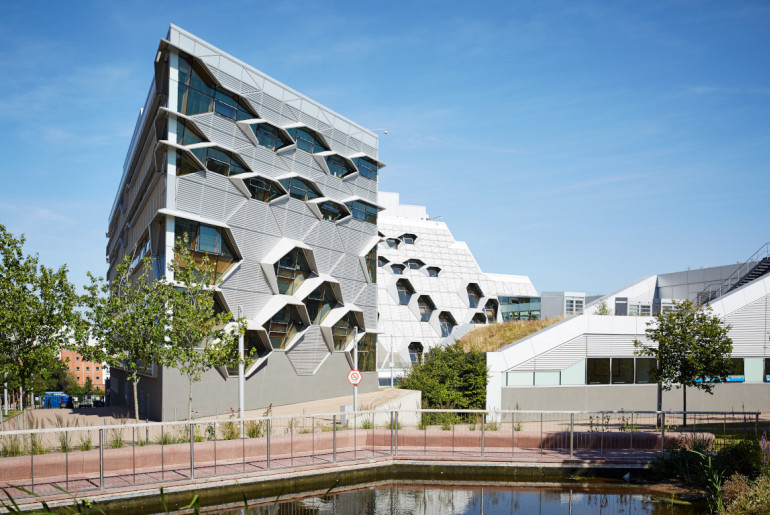
What is Facility Management Software?
Facility management (FM) software has evolved from being a system merely for registering buildings and asset data to a comprehensive solution that aims to increase efficiency in the planning and execution of facility processes. The primary purpose of facility management software is to improve the quality of life for people within the built environment by streamlining processes and enhancing productivity.
Facility management software is fully web based and includes:
- Workflow management
- Work order management
- Extensive reporting
- Business analytics
Integration with other IT systems like:
- ERP software
- Building technology
- GIS solutions
- BIM models
- CAD software
- Functionality for contracting services and monitoring agreed quality, budgets and performances.
Facility management software is often available via the cloud and delivered in a SaaS (Software as a Service) model, increasing your flexibility of use, and reducing internal maintenance and investment efforts. Cloud-based facility management software is becoming more common, and it is often referred to interchangeably as facilities management software. When talking specifically about the software, the terms Computer Aided Facility Management (CAFM), facility management system and more recently Integrated Workplace Management System (IWMS) are commonplace.
A successful Facility Management strategy
Implementing facility management software brings numerous benefits. In addition to providing operational support for facility management processes such as space management, maintenance, and services management, facility management software provides managers with valuable information and analytics. This helps them make informed decisions, implement the right measures, and track the results, ultimately contributing to the overall improvement of the quality of life within the built environment.
1. Facility Management software costs and savings potential
One of the key starting points is achieving cost transparency and solid cost registration and allocation. In many cases facility management software is connected with financial systems, reducint manual data input and ensuring data consistency. FM software can provide cost insights through dashboards, presenting costs per square meter per year, costs per workplace per month, costs per user, or any other relevant report. These reports enable identification of saving potentials based on trends, deviations, and internal or external benchmarking.
2. Flexibility to adapt to changing business and operational requirements
Facility management supports the core business by providing services and facilities that ensure a safe and productive working environment for all workplace users, including employees, students, visitors and contractors. Facility management software helps managers to forecast future needs, create multiple scenarios, and analyse the impact on the type and size of real estate and facility services. This allows Facility Managers to increase their contribution to the core business and ensures timely alignment of services and facilities with changing needs.
3. Selecting the best sourcing strategy
Many organisations outsource operational facility or real estate services, such as cleaning, catering, security or maintenance to professional service providers. Large and international providers offer ‘integrated facility management contracts’, including all support services and even management. Facility management software assists in determining the best sourcing strategy by providing information about real estate, spaces, assets, services, processes, costs and customer requirements. And once a strategy is determined, FM software helps to monitor the performance of providers and allows you to update or add new contracts fast.
4. Demonstrating customer value
Facility management has evolved into a customer-oriented service due to its impact and business value. Facility management software strongly contributes to this customer-centric process by integrating FM, IT and HR services into one comprehensive software solution. It also offers anytime, anywhere access to services with web-based self-service technology. The best FM software even includes automated customer survey tools to validate the perceived quality and value of any type of service. This information helps facility managers constantly improve their services, increasing customer satisfaction and delivering value to the core business.
5. Aligning workplace concepts with increasing workforce mobility
Employees are becoming increasingly flexible in when, where and how they work. The workforce is more mobile than ever before; people work from home, on the train, in public spaces or in flexible offices. Enterprise facility management software enables you to align your workplace and services offering with this new dynamic in workforce mobility.
Learn more about Facilities management software

The importance of facility management for corporate ESG
IDC Spotlight on Facility Management and Sustainability
Read more
What's the added value of IoT for Real Estate and FM?
The 'Internet of Things' is probably one of the most discussed phenomena these days. What is the added value of IoT for Real Estate and Facility Management?
Read more
A digital maturity pathway for smart(er) organisations
Read this step-by-step guide to achieving digital maturity in your organisation from Planon and IWFM.
Read moreFacilities management software requirements for professional Service Providers
Commercial providers offering professional facility, maintenance or real estate services have embraced facilities management software as an integral part of their core business. This software helps them enhance planning, delivery and quality of their services. Due to the nature of their business, service providers have specific requirements when it comes to FM software:
Functionality
From a functional perspective, service providers require robust capabilities for planning, dispatching, execution, and monitoring contracted work. Modern FM software provides mobile solutions to execute field- and maintenance services, ensures compliance with health and safety regulations, supports stock- and purchase management and allows operational controlling and monitoring.
Standardisation
For service providers, process standardisation is business critical. It increases efficiency and flexibility, improves output and quality, and helps providers to work both profitably and competitively. Facility management software allows them to standardise business processes and workflows accross multiple customer contracts, all within a centralised software solution.
Financial integration
Timely and accurate billing is a fundamental aspect of every service provider’s business model. In most cases billing is handled by a financial system or ERP software. As FM software incorporates vital billing-related data – such as time spent, travel costs, and materials used – a seamless and bi directional integration with any financial system is a key requirement for a successful implementation.
Business continuity
As facility management is at the core of their business, service providers place immense importance on the availability of facility management software. Both operational users and managers require easy, web-based access to the FM system anytime, anywhere. Factors such as international support, swift response times, secure installation of software updates, and professional data and system backups play a crucial role in maintaining business continuity.
Planon has developed a tailored solution with unique functionalities specifically designed for service providers. The Facility Services Business Solution is an integrated software platform that promotes operating efficiency, increases customer value, and enables business innovation. Learn more and watch this video on Facility Management for Service Providers.
Video | How technology disrupts Real Estate and Facility Management
Keep in touch
Register for our newsletter to receive free resources and industry news.
Global success stories

BayWa - Hybrid working with the Planon Workplace App
Case study on using the Planon Workplace App at BayWa to support hybrid working.
Explore now
Tegel Projekt GmbH & Disruptive Technologies
Case study on the digitalisation of Tegel Projekt GmbH's building operations using IWMS and sensors.
Explore now
University of Sunderland - Live in just 7 weeks
Live in just 7 weeks! Read about the University of Sunderland’s journey to replace its outdated CAFM system with Planon for immediate maintenance process improvements.
Explore now



























